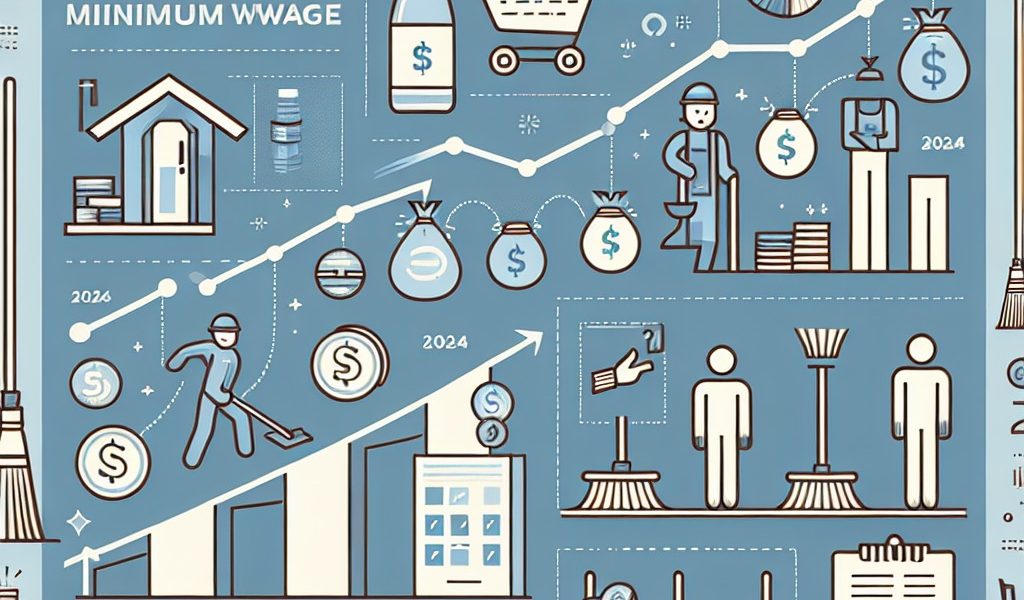2024 Salary Briefing: Unveiling the Latest in Minimum Wage Developments for the Cleaning Industry
Introduction
In the cleaning sector, employees are subject to salary scales which determine their remuneration according to their hierarchical level and the position occupied. These grids are regularly updated, in particular thanks to annual negotiations with social partners. In this article, we inform you about the latest updates regarding minimum remuneration in this sector, with a particular focus on the minimum hierarchical income (RMH) and recent agreements which influence this remuneration.
The agreement of June 25, 2002 on job classifications
The agreement of June 25, 2002 established a classification of jobs in the cleaning sector, thus making it possible to establish salary scales adapted to the different functions carried out by employees. This agreement is updated annually to take into account economic and social developments.
Annual update of job classifications
Every year, the social partners meet to negotiate updates to job classifications and therefore the corresponding salary scales. This approach aims to guarantee that each employee benefits from fair and appropriate remuneration based on their professional experience, their skills and the responsibilities entrusted to them.
Revaluations planned for 2024
For the year 2024, several increases are planned concerning the minimum remuneration in the cleaning sector. These increases concern in particular the minimum salary and an annual bonus.
Minimum wage increase
In order to guarantee a decent standard of living for the least qualified employees, it is planned to increase the minimum wage applicable in the cleaning sector in 2024. This increase will be applied according to a precise timetable, thus allowing companies in the sector to gradually adapt to this new financial constraint.
Setting up an annual bonus
In addition to the increase in the minimum salary, it is also planned for 2024 the implementation of an annual bonus intended to recognize the commitment and performance of employees. This bonus will be allocated on the basis of a lump sum determined by the social partners during annual negotiations.
Timetable for application of revaluations
The increases announced for 2024 will be applied according to a precise timetable so that companies can anticipate these changes and adapt their salary policy accordingly. So :
- The increase in the minimum wage will be effective from the start of the year,
- The annual bonus will be paid at the end of the year, after evaluation of the individual and collective performance of employees.
Access updated documents and salary scales for 2024
To consult the updated salary scales for the year 2024, you can go to the website of the professional branch of the cleaning sector. There you will find all the information relating to job classifications, as well as the amounts applicable for each hierarchical level and position occupied.
It is also possible to access these documents from trade union organizations representing the sector or directly from your employer. Do not hesitate to seek advice from your staff representatives if you need help understanding these salary scales and knowing your rights regarding minimum remuneration.
Conclusion
The 2024 cleaning salary scale provides for several increases in minimum remuneration in the cleaning sector, including an increase in the minimum wage and an annual bonus. These measures result from annual negotiations between social partners and aim to guarantee a decent standard of living for workers while promoting their professional commitment. To access updated documents, consult the website of the professional branch or contact your employer or union representatives directly.

